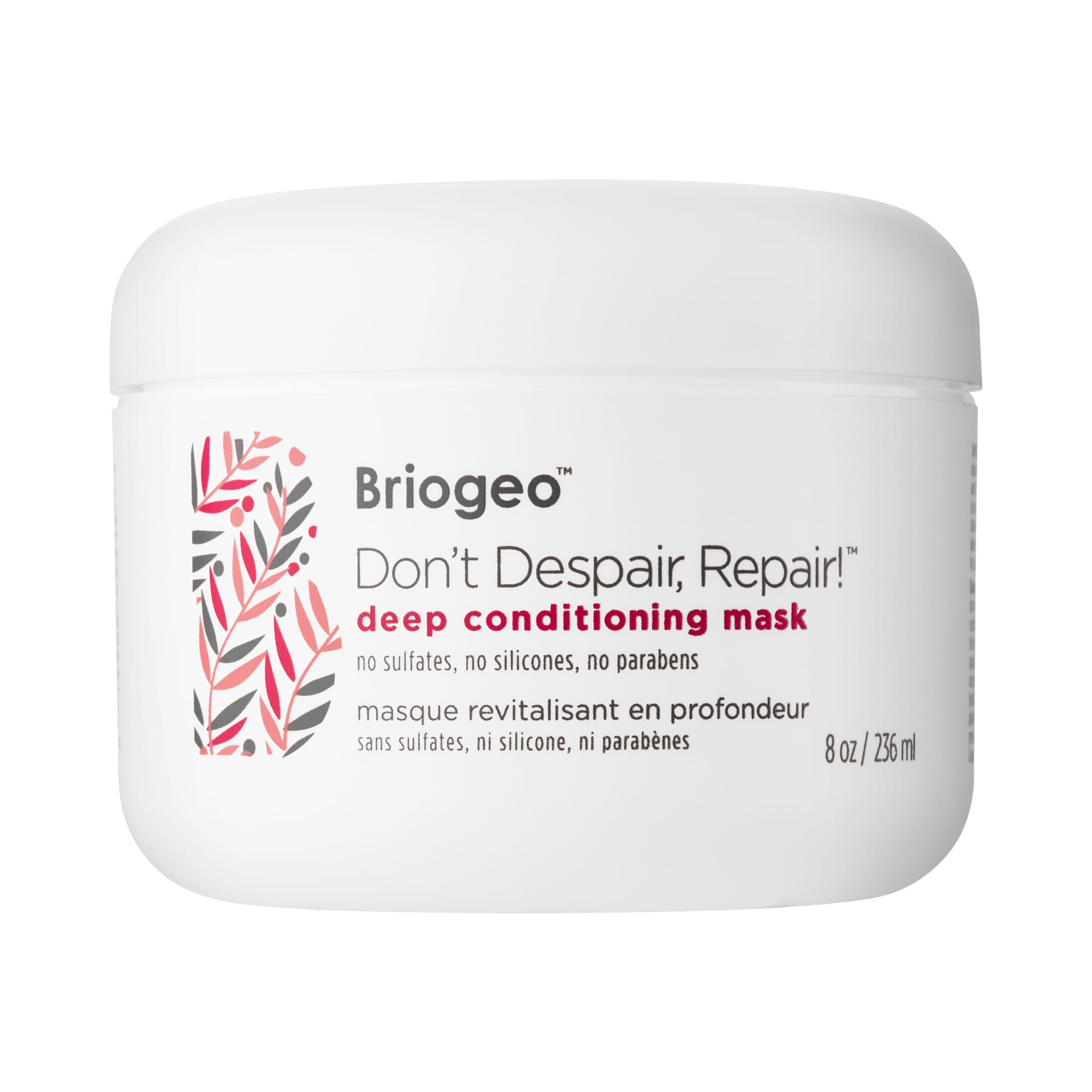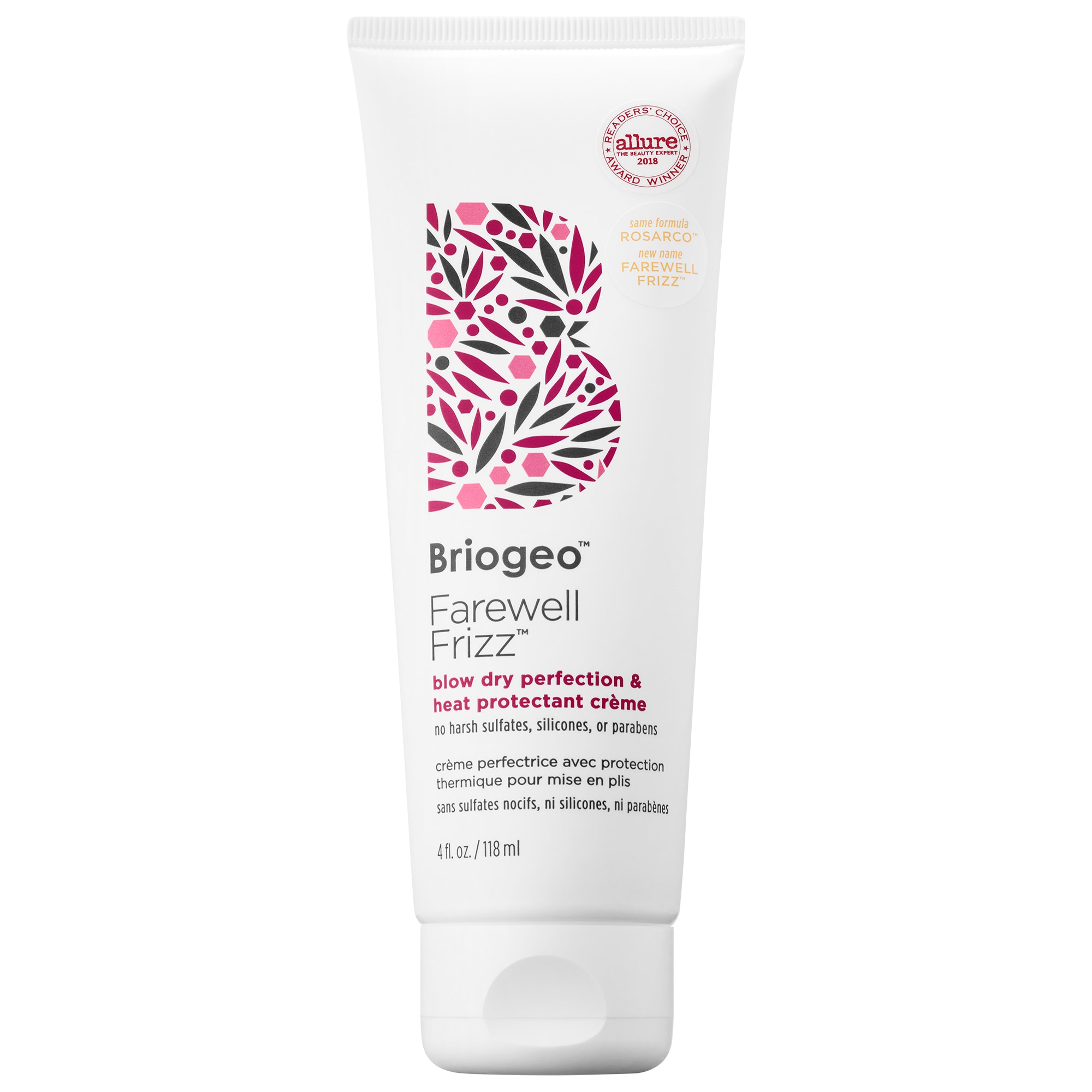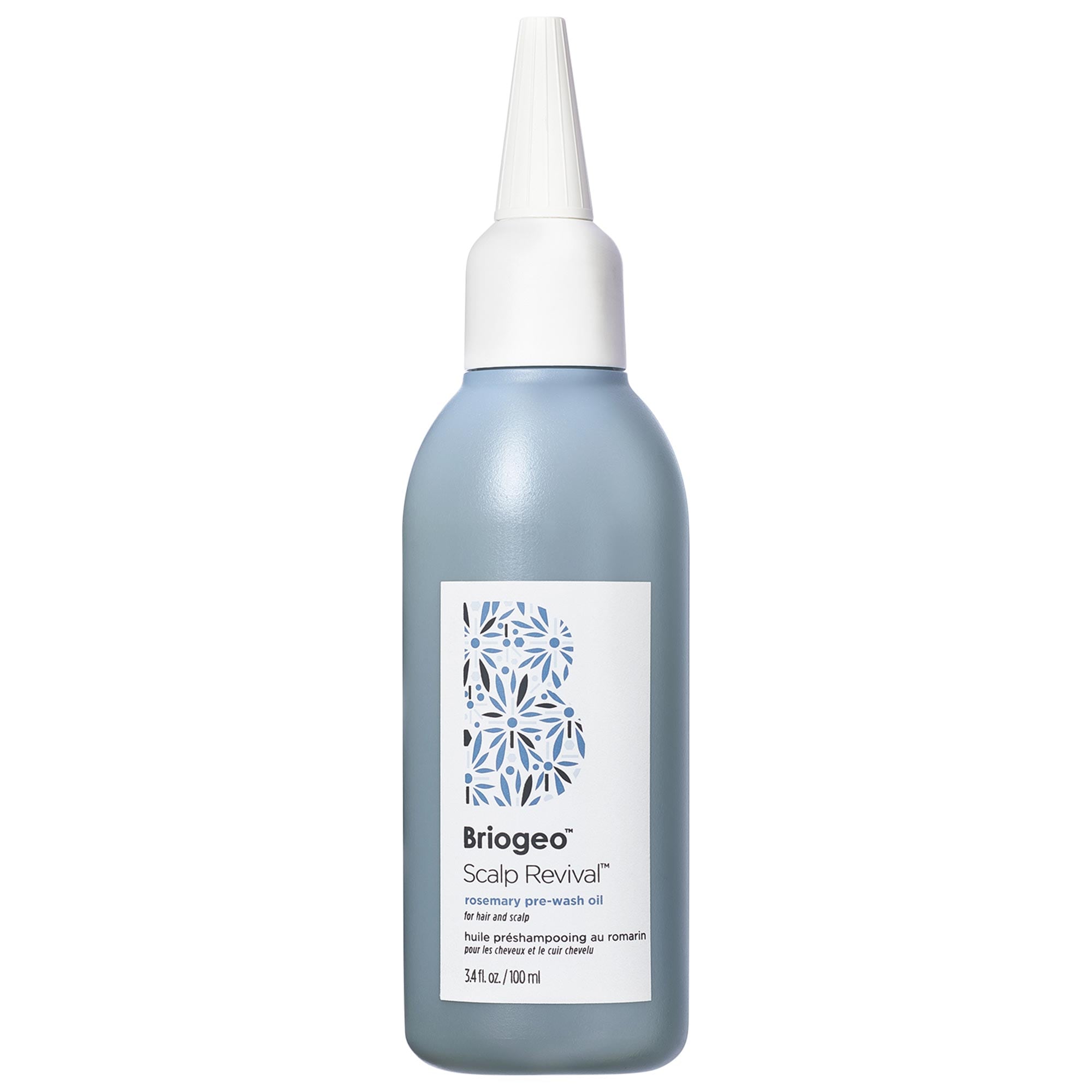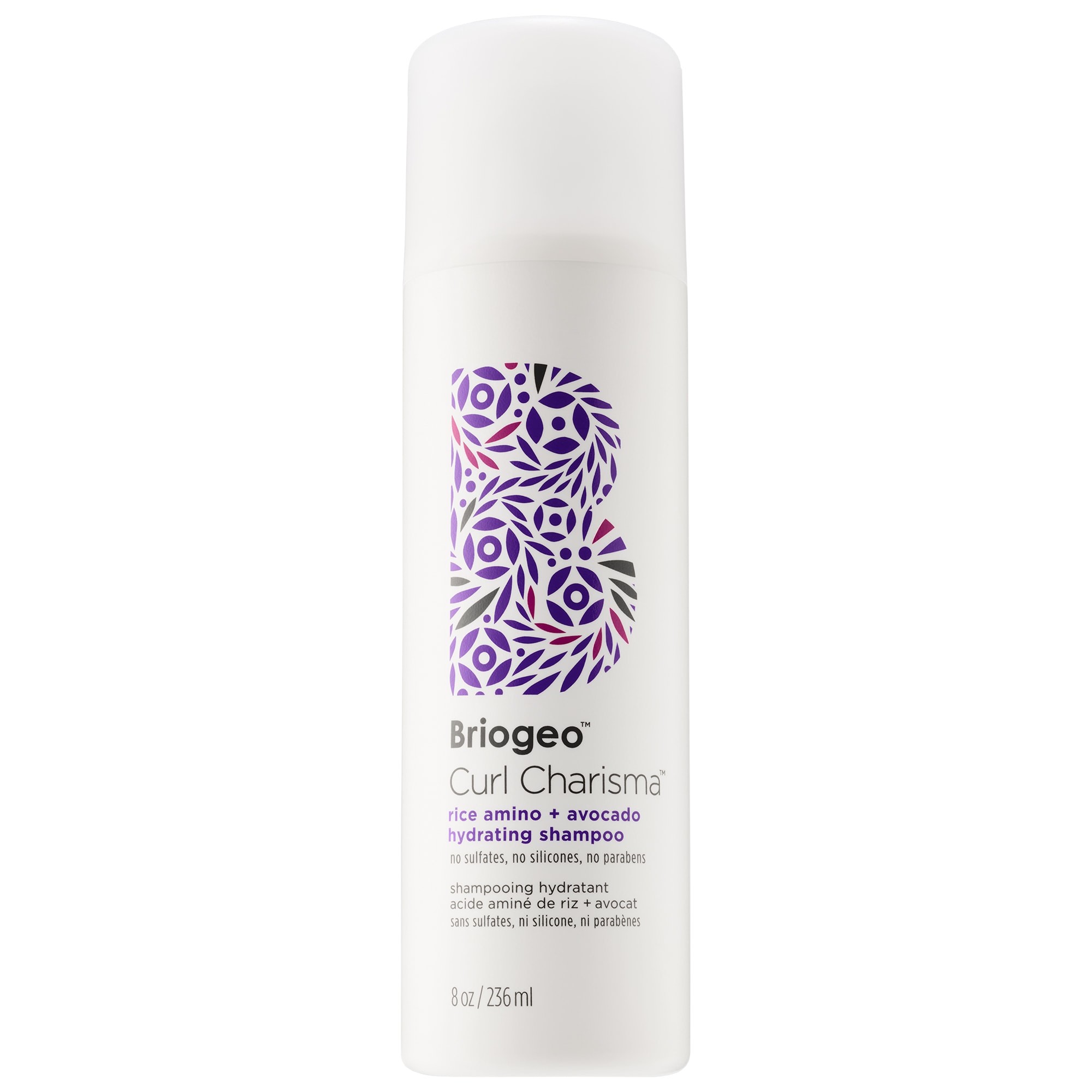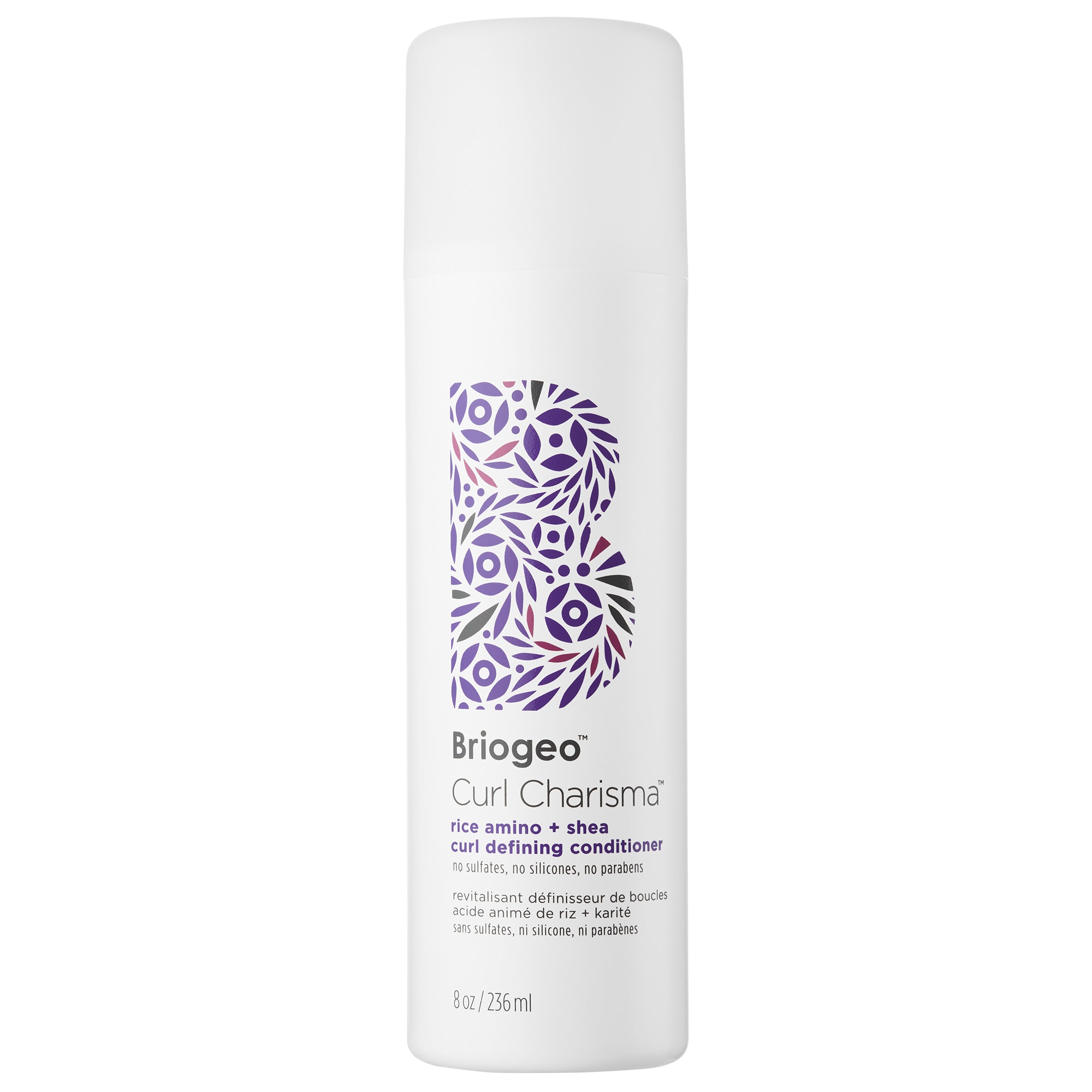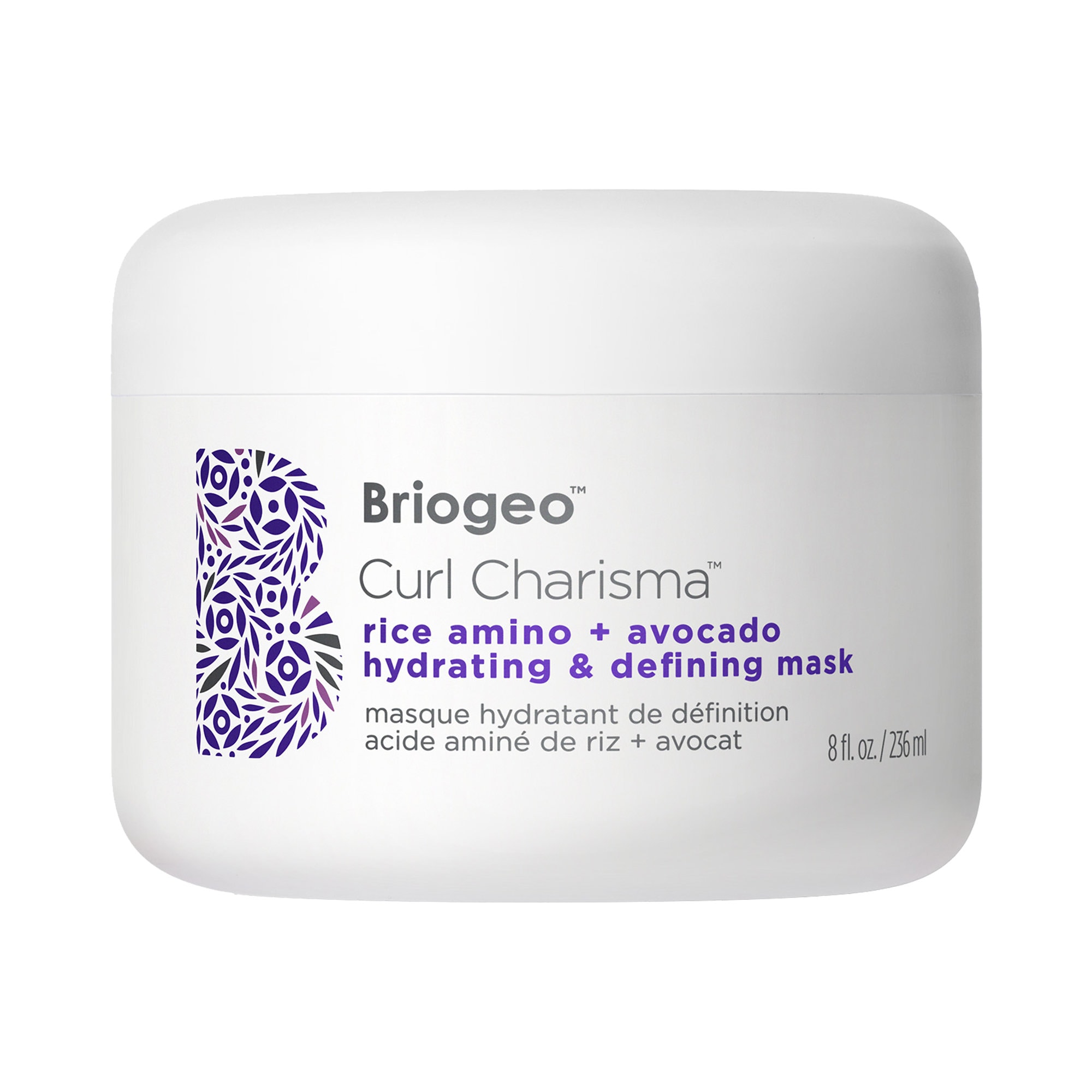You *Can* Pivot to a Totally New Career—Briogeo Founder Nancy Twine Is Proof
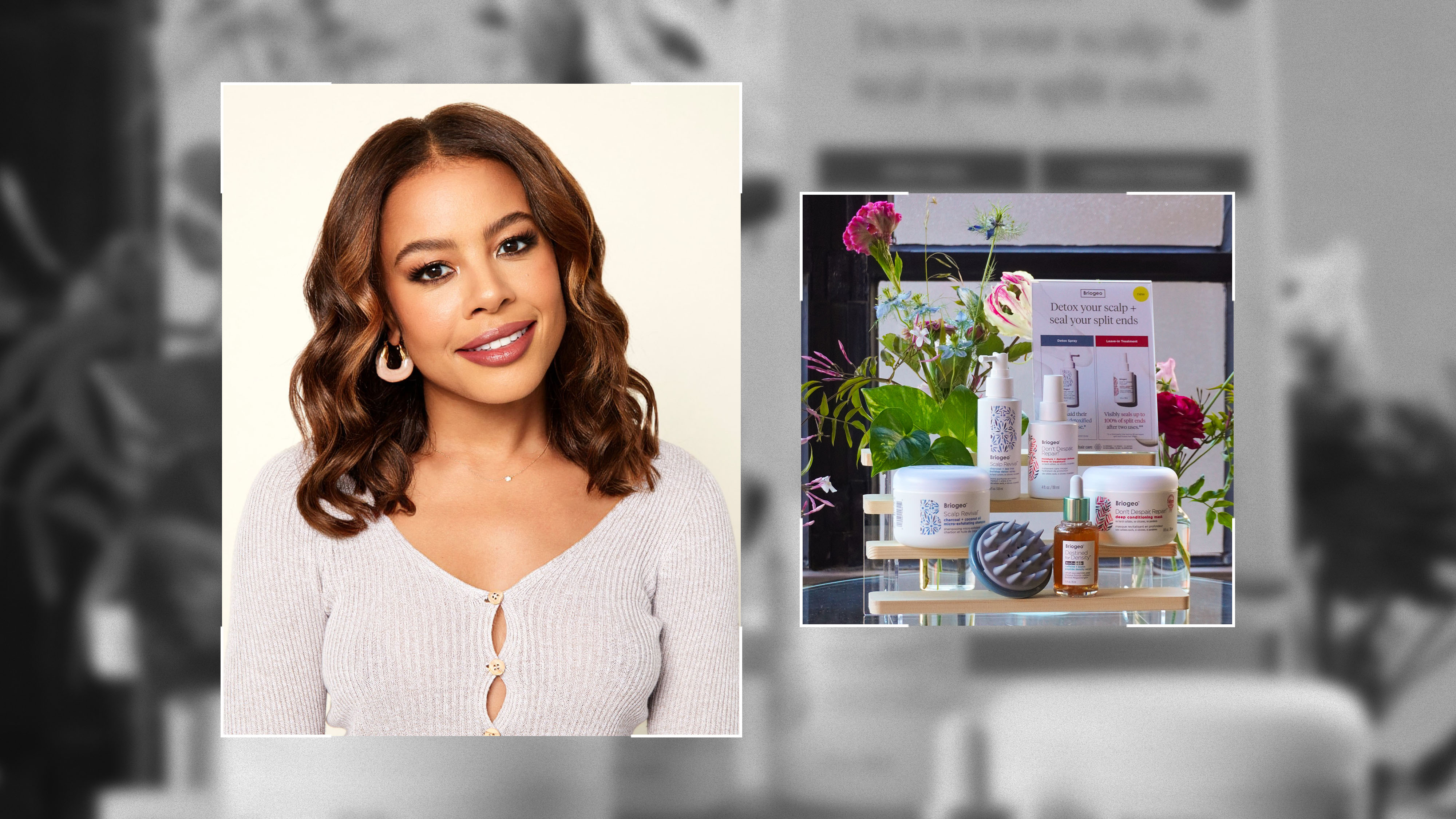
With a firm handshake, say hello to Business of Beauty—an exclusive, inside look at the incomparable journeys of entrepreneurs of color in the beauty industry. This series is anything but business as usual. It's a raw, honest look at the unique and often overlooked challenges that people of color face when starting their own beauty brands. Each founder will reveal the biggest hurdles they've overcome, their internal struggles, and their deepest thoughts about what needs to change in the beauty industry (and the world, really) to make it a more inclusive space for everyone. This time around, we're getting to know Nancy Twine, the founder of Briogeo. Twine started her career in finance but, with an entrepreneurial spirit, pivoted to create something completely different—her own haircare brand with a nontoxic ethos. Twine talks about the challenges she faced, her new podcast, and how we can truly create a more inclusive beauty space.
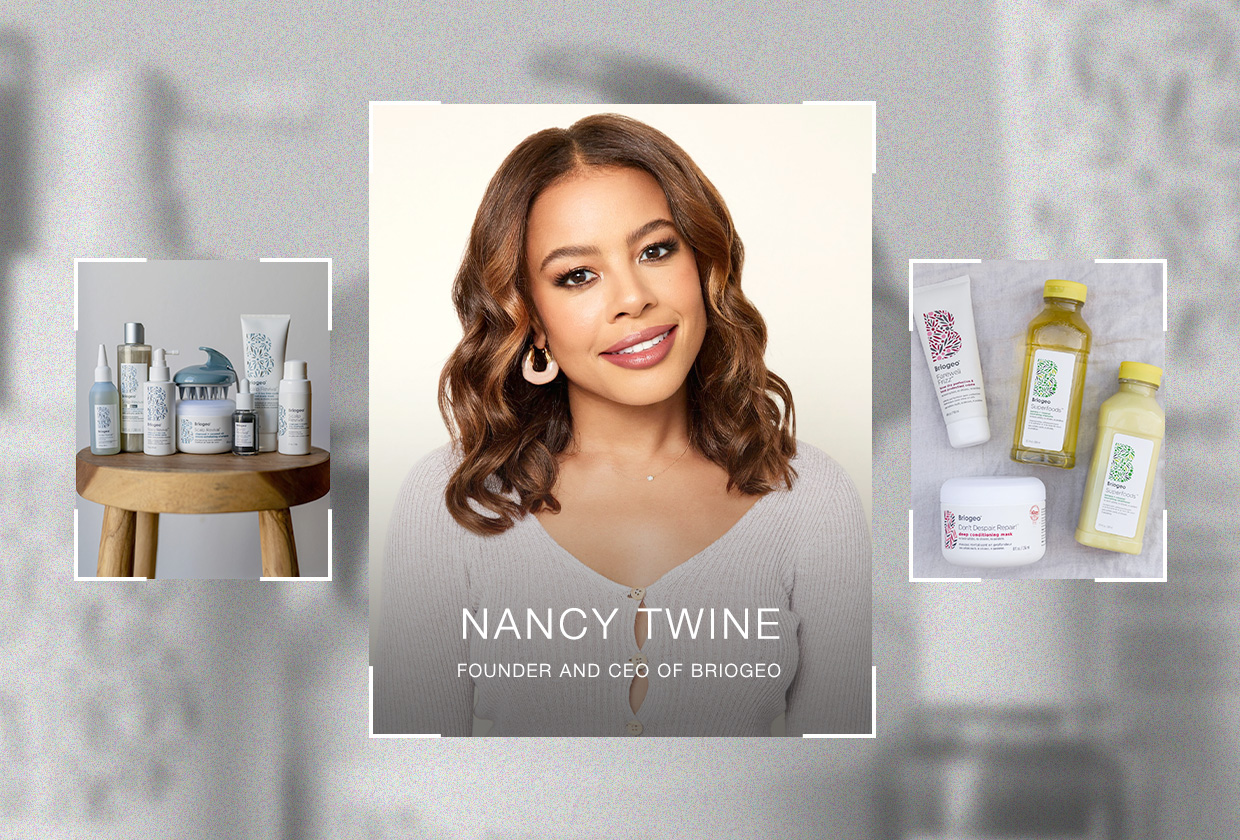
If you're a haircare enthusiast, chances are you already know and love Briogeo founder Nancy Twine. However, this may be the first time some of you are hearing her name simply because she spent over a decade out of the public eye quietly building up a brand—until recently. Twine is now shifting gears and offering up more insight into her entrepreneurship journey with Makers Mindset, a podcast dedicated to creating a space for other women who are visionaries in the industry—a place to tell their real stories. Twine doesn't just want to paint a simple and easy picture of entrepreneurship, though. The more I spoke to her about her vision and ideas for the podcast, the more I realized how aligned we are in what we want to achieve. I started Business of Beauty because I wanted to have a deeper conversation with Black women founders about the unique challenges they've faced in their careers. Similarly, Twine doesn't just want to gloss over the hard parts on Makers Mindset. She's diving into everything from mental health and being a mother while running a business to pivoting to a totally new career with no previous experience. Twine is the perfect example of why you can succeed no matter your background. She proved it by leaving her first career in finance and starting a whole new one as a haircare entrepreneur.
Additionally, now that Twine has found massive success on her own, she also wants to give back in a meaningful way. Twine is partnering with Sephora on another passion project, the Dream Makers Founder Grant. This one-million-dollar, four-year grant program aims to shine a spotlight on female entrepreneurs, particularly the innovations of Black and BIPOC founders in the industry. I had the honor of sitting down to chat with Twine about these exciting new projects and how her decade-long career in the beauty industry led her to this point. Read on below—the wisdom and inspiration she shared definitely belong on your next vision board.
I'd first love to start by talking about your background and what drove you to create Briogeo.
It's interesting because I'm not a hairstylist or a chemist, and when you look at a lot of beauty founders, that's how they got their start. I actually started my career in finance. Back in 2007, it was right before the start of the financial crisis, and it was a really challenging time to be working in finance. Not only because of what was going on in the world but also as a female and as a Black female. I had a really, really challenging start to my career, and halfway through, I actually lost my mom really suddenly. It forced me to do some soul searching around what I really wanted to do with my life just because I wasn't feeling the purpose and passion for my career at the time.
During that soul-searching journey, I kept thinking back to the childhood memories that I had with my mom, who was a chemist. Growing up, we used to make a lot of our own beauty products at home, using ingredients that we would get from our local health food store—different oils and extracts, salts, sugars, and butters—and taking them home and transforming them into these very simple, but highly effective, customized beauty products. It's interesting because at the time, clean beauty wasn't really a thing. I was starting to see some brands pop up, but I had a feeling that was just where the beauty landscape was going to go, similar to what happened in the food space with organic and natural foods and things like that. I started spending my nights and weekends, while still working full time, [to get] the foundations for creating Briogeo underway.
You kind of already answered this, but I'd love to hear more. What made you want to adopt a nontoxic philosophy? Did you ever feel like hair products (specifically those marketed toward Black women) used a lot of sketchy ingredients?
Completely! I think [it was] a couple of things. It was very clear to me when we would go to beauty stores that there was always a plethora of haircare products for non-textured hair, but when it came to textured hair products, there was typically a very isolated, very small, narrow section on the bottom shelf, dimly lit. It was just not a very balanced assortment compared to what everyone else was getting, but you're right. A lot of those products were very heavy, petroleum-based [products]. [They] had a lot of artificial colors, silicones, and just other things that maybe made you feel like they were doing something for your hair, but ultimately, the ingredients were quite questionable. I think there are also just a lot of [questions like], What did those R&D teams look like? Were those big companies even dedicating enough resources to really come up with thoughtful innovations and the right type of formulas that were actually safe and nontoxic? I think there were just a lot of question marks around how that whole category was being developed.
Exactly! Did you ever feel like you faced any unique challenges as a Black woman entrepreneur at the time?
I think there were a couple of things to be honest with you. Briogeo has always been marketed for all people, and I knew that when I showed up to stores to do trainings on the products, people would just assume that the products were only for people with textured hair. Because they didn't understand textured hair, they wouldn't be comfortable introducing the products to people, and that created a really tough situation for me, because I'd be like, "Wow, if the sales people aren't comfortable selling the products, how am I going to maintain my shelf space?" That was definitely one of the challenges that I really had to face was, 1) getting people comfortable and educated on products for all hair textures and types, and 2) how to evaluate needs and product fits based upon what the clients were saying their concerns were. I definitely felt like I had to play an extra role and [provide] that education [element], for sure.
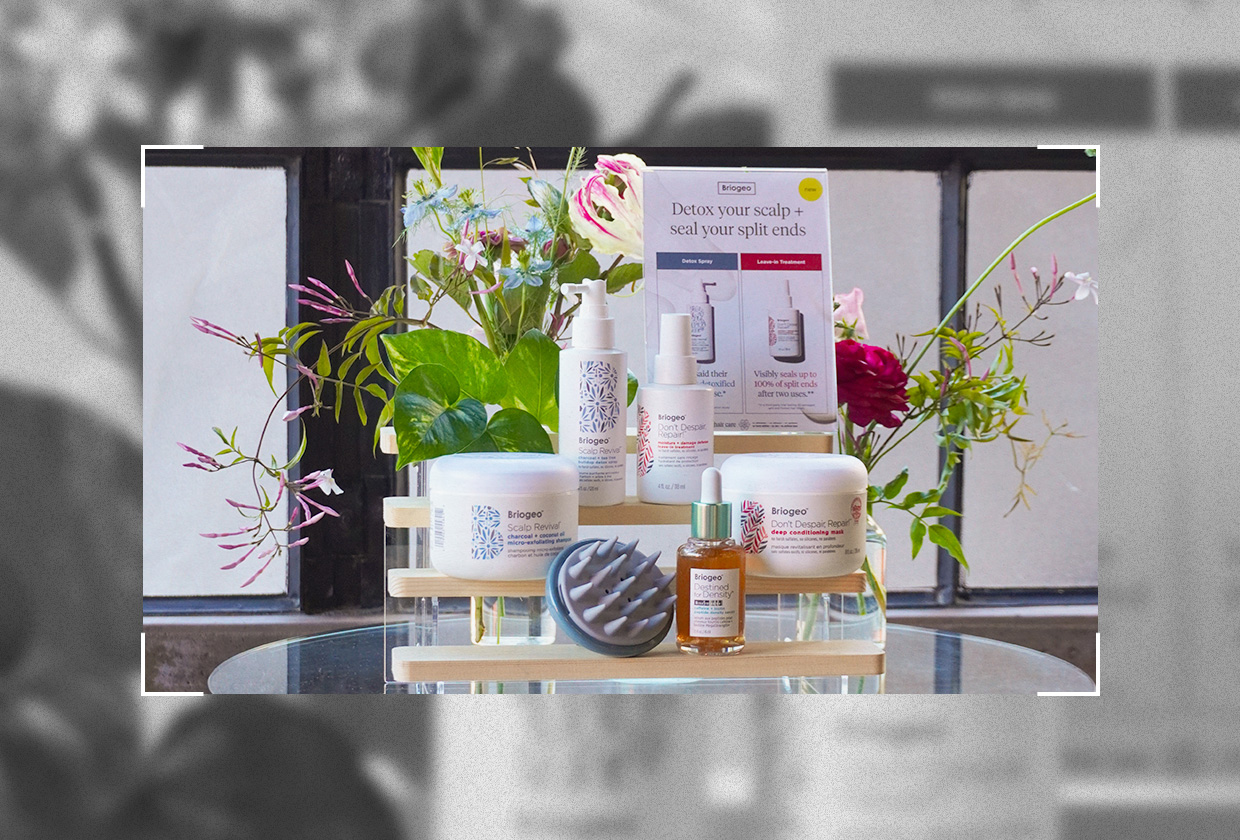
Definitely! It's nice to see progress in that regard and that hairstylists are also stepping up to educate themselves on a variety of hair textures. I know that you're also a huge advocate for other Black and Brown entrepreneurs as well. Besides buying products, what else can we do to support their businesses or other aspiring founders?
Something that I've been very, very passionate about is [that] I always told myself that if I ever got to a place of success with Briogeo, I really wanted to figure out how I could pave the way for others that look like me that are trying to do a similar thing. I know that we'll talk a little bit more about the grant in a little bit, but I really [want to] challenge people. Whether you're an entrepreneur, a beauty editor that's gotten to a certain place, or maybe even a doctor, think about where you got to and think about how you can leverage your skills, not to just to climb the ranks for your own personal success, but how can you take those skills to help other people who look like you that want to do something similar? Because I'm a big believer in the concept of seeing is believing. When you're able to mentor, help bring other people up, and show them an example of what success can look like when someone looks like you. I think it's one of the most powerful things that we can do to help to reinforce that cycle of growth.
I really love that. That's also the perfect segue into my next question about the Dream Makers Founder Grant, which I'm so excited to talk about! What does this grant mean to you, and what do you hope it will accomplish for Black and Brown entrepreneurs?
I still feel, to this day, so indebted to Sephora, because almost 10 years ago, they took a chance on me. Again, someone who had no background in hair, no background in chemistry—I had never even worked in the beauty industry, but they saw my passion, they believed in my vision, and they gave me a shot to launch on all of their shelves. When they launched the Sephora Accelerate program in 2021, that was a commitment to help more Black and underrepresented founders do the same thing by getting them into this retail readiness workshop program and giving them the opportunity to launch at Sephora. I think one of the things that I often talk to a lot of these cohort members about is that they're like, "Okay, wow, this is great, we got into Sephora Accelerate, they want to give shelf space, but we need money to be able to take this next step."
The first guest on my new podcast was Jessica Cruel. I asked her the question, "What do you think it takes [for] a brand to stand the test of time?" And her answer just instinctively was money—these founders need that. The truth is, starting out, I don't think founders should be forced to take on investors, because when you take on an investor, you're not just taking a check; you're also committing to board meetings, calls, having your financials scrutinized, and having to hit targets. That can be a lot of pressure, and it can be very distracting for early founders. I wanted to create this grant as a way to [combat that]. It's a one-million-dollar, four-year grant partnering with Sephora Accelerate and [its] Fifteen Percent Pledge [program] to get the money into the founders' hands. It's a way to help them bridge the gap to some of those early startup funding needs without needing to pay it back. Even if they put it all toward something that they really believe in like a marketing strategy, and it doesn't work out, that's okay. It really encourages that risk taking, and it helps to take the weight of that obligation off with no payback, no equity, and no investor involvement.
I think it's so cool that you're doing this. There really are so many founders out there who are looking for capital. I never really thought about the fact that taking on investors means your brand could potentially go in a direction that you hadn't originally envisioned. I'm glad that you mentioned your new Makers Mindset podcast already as well! I'd love to hear a bit more about that. What's your goal with it, and what kinds of conversations are you looking to have on it?
About a year ago, I'd launched my content site, which was really about publishing weekly articles that were meant to focus on topics that a lot of female entrepreneurs are navigating. [I wrote about topics like] how to write a compelling pitch deck and how to navigate investor terms. [I asked myself], How can I take a lot of the things that I went through and create resources where a bigger audience can have access to that information? The Makers Mindset podcast was a natural evolution of that.
I also wanted to make sure that I was not just putting my own experience out into the world, though, because over the past 10 years, I've met so many incredible entrepreneurs, leaders, and changemakers. [I wanted to] bring them to the forefront and help to amplify those stories to the audience as well. The motivation behind Makers Mindset was to do exactly that and to start building community around these topics as well because I think that Makers Mindset can ultimately become a movement and something that can do a lot of good for so many people around the world.
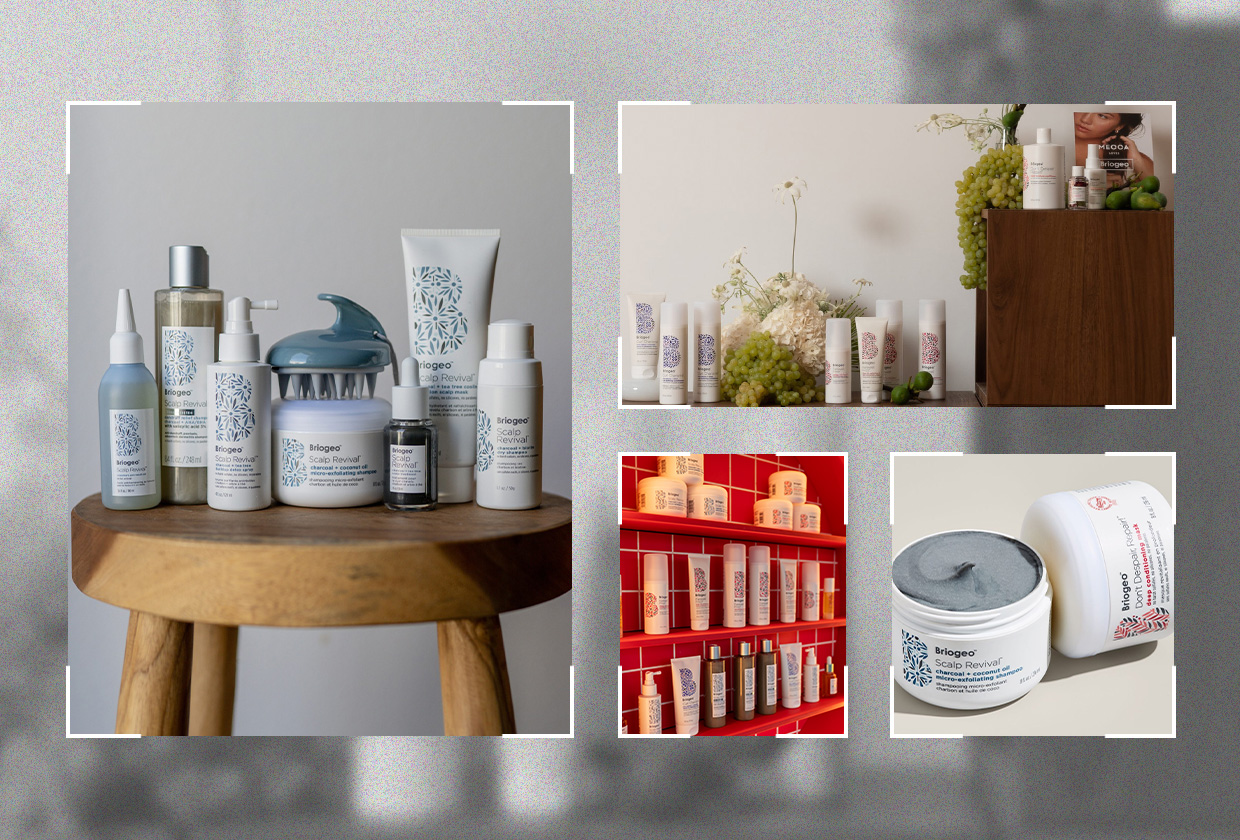
That's so important right now, and I think it's so key for aspiring founders as well because it's really great for them to hear those success stories and to know that they can do it. We've touched on this a bit already, but what else do you really want people to get out of it?
I think a few different things. One of the things that I want to do with Makers Mindset is not to have it just be a retelling of how someone went from [point] A to [point] B, because there's a lot of that, and [most founders] have their story out there [already]. I really want it to go beneath the surface to really understand the challenges in people's personal lives that they had to overcome and how they actually go about cultivating the mindset to be able to get from A to B. It's just that deeper level of stuff. We're talking about everything from mental health and physical wellness to dealing with personal relationships and being a mother running a business—a lot of the things that people aren't often discussing. I think [it provides] that deeper level of relatability and not just having people feel like, Oh, that was a wonderful story. [I want people to think], Wow, if I actually employ some of those tactics that I learned about this, that's how I can start leveling up and how I can achieve the things that I want to achieve.
I'm so excited to listen to this. I feel like the insight offered will be valuable for everyone, even if you're not a founder. Switching gears a bit here: We, of course, have to talk about Briogeo. It's such an iconic brand, and I've used it for years. Can you share what your Briogeo haircare routine looks like?
Something that has always been important to me has been hair health, and it's part of the ethos that Briogeo was founded on. When we launched at Sephora almost 10 years ago, we were really the only brand that was focused on treatment and transformation, and this idea that if you actually treat your hair well and you nourish it with the right ingredients, that's how you create the foundation for healthy hair. Then you don't need all those other products with the alcohols and silicones. You're not trying to mask things; you can just embrace your healthy hair. One of the fundamentals to healthy hair is, again, making sure that you have a really solid treatment regimen, which is something that has really been a ritual for me—the idea of doing a weekly deep-conditioning treatment and also a weekly scalp treatment. So actually exfoliating my scalp, getting rid of all the deep-rooted impurities so that hair follicles can grow healthy without congestion. [It's] really [about] thinking about your hair the same way you do your skincare regimen. On a weekly basis, [I use] the scalp shampoo, the hair mask, and then in between—since I've moved to Miami, and it's very, very humid—[I] have products that help to really seal the hair cuticle. I love the Farewell Frizz collection if I'm doing a blowout, and I love Curl Charisma if I'm just doing a natural air dry.
Is there anything new coming down the pipeline at Briogeo that you can share with us?
We have some great innovations coming up at Briogeo—I can't say what they are yet, but there's a new category that we're going into for the first time, and we're infusing our ethos of treatment into it in a way that no other brand has done. Even after 10 years, Briogeo's innovation is still on fire, and I'm so, so excited about that. It's really interesting because in a lot of ways, launching this Makers Mindset podcast almost feels like launching a new company—it's so new, and we're building an audience from the ground up. That's something that I really want to continue to pour a lot of time and focus into so that we can make it something bigger and more people can learn from [it] and can become part of this movement that we're trying to cultivate. I don't have a background in media—I don't do what you do—so I'm learning about this, just like I was 10 years ago, learning how to be a haircare entrepreneur for the first time. It's fun, though, and I'm really excited about it.
Lastly, what does a truly inclusive and diverse beauty space look like to you? And what do you think we can do to continue to create that space?
That's a really good question because I will say—especially after 2020—I think a lot of brands that never really were rooted in ethos from the beginning around diversity did a lot of patchwork to make it seem like they were. I guess if I'm speaking to brand founders, I think it's just really important to realize that in order to succeed in beauty, you have to make sure that you're creating products that are authentically keeping all consumers in mind, right? I was just at Sephora's brand summit the other week, and the population—even shopping at Sephora—is so diverse. If you're not even thinking about that spectrum of consumers when you're launching your brand, you're already behind. Thinking beyond yourself is very, very important.
For consumers, it's important to be vocal. I think it's one of the things that has been so great about social media, and it's how we innovate a lot of our products. We have customers who are writing in the comments, [and] they're DM'ing us asking [things like], "Can we get a curl gel that has medium hold where I can do a slick-back?" Speak up. Put your voice out there and talk about the things that you want because brands are listening. I think that's very important. And then I think when speaking to the retailer population (and Sephora has done a really, really good job at this), how can retailers use their power to help bridge the gap to not only bring in diverse brands but make sure that they're setting them up for success? What sort of resources can you give to new, underrepresented brand founders that are going to really give them a strong shot at success in the retail environment and help level that playing field? I just spoke to three different audiences, but I think all those things are really important.
Shop My Briogeo Favorites
Shawna Hudson is a beauty, wellness, lifestyle, and travel writer with over 10 years of experience. She graduated from California State University, Fullerton, with a degree in journalism and has written for other publications such as Bustle, The Zoe Report, Byrdie, Elite Daily, and more. She is currently a beauty writer at Who What Wear and hopes to continue feeding her (completely out-of-control) beauty obsession as long as she can. Stay up to date on her latest finds on Instagram @shawnasimonee.
